- Jimmy the Fox
- Posts
- Silent Nights and Mulled Wine
Silent Nights and Mulled Wine
Discovering Germany's True Christmas Spirit
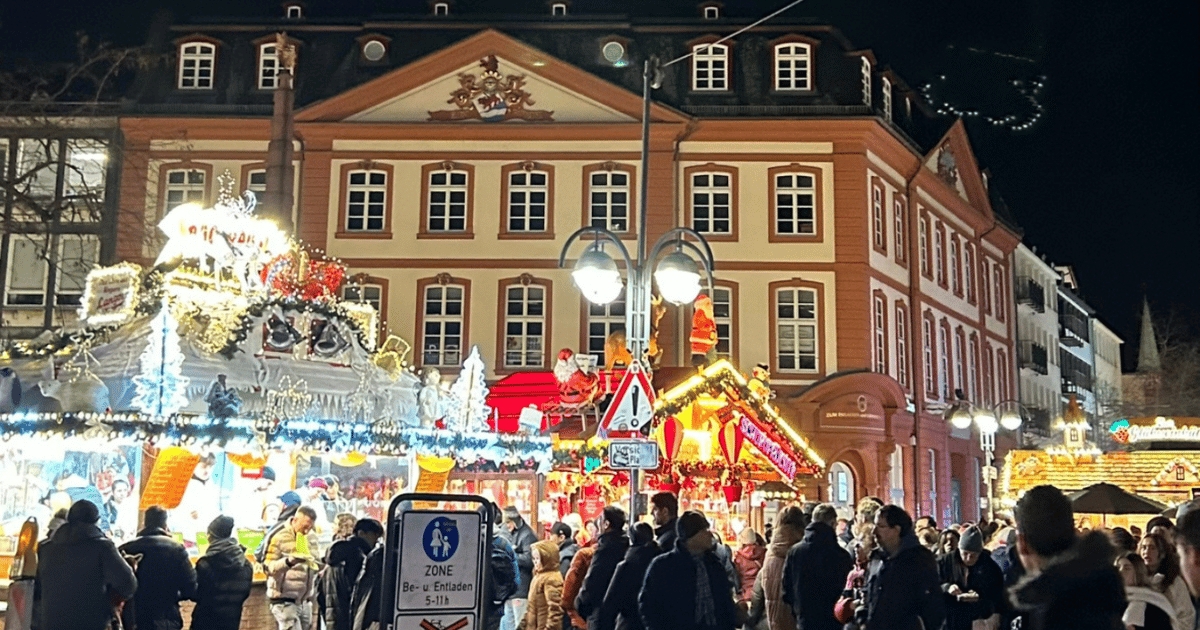
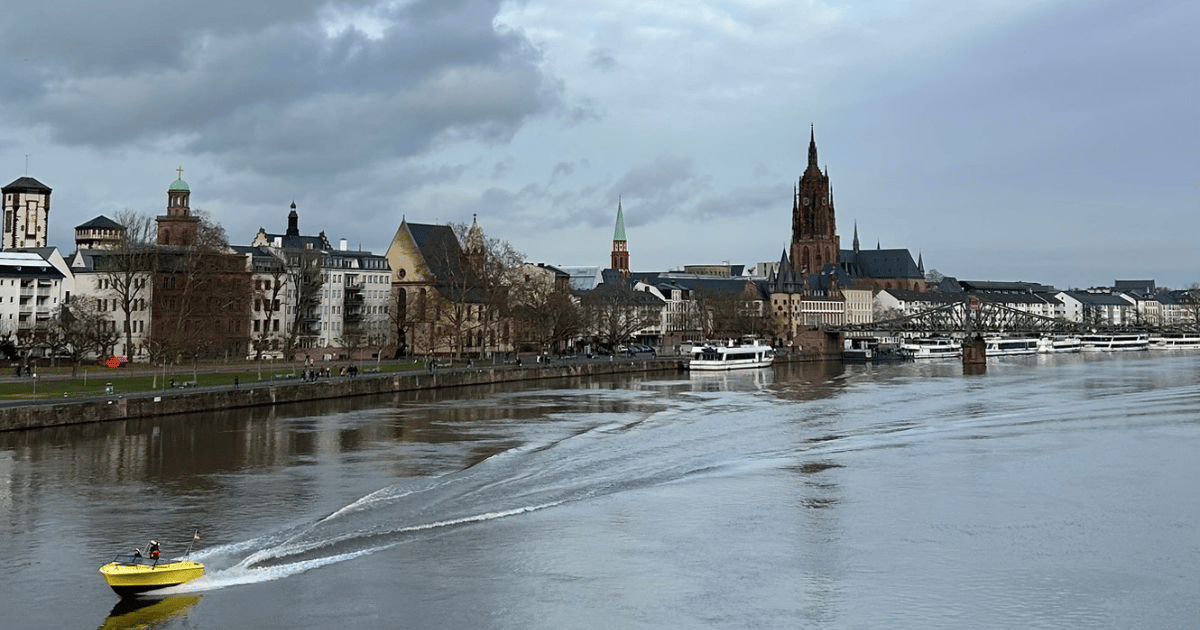
Discovering Germany's True Christmas Spirit
The scent of cinnamon and cloves wafted through the empty streets of Frankfurt as I stood alone on Christmas Eve, wondering if I had somehow missed the memo. Where were the crowds? The carolers? The festive bustle I had imagined? Little did I know that this moment of confusion would lead me to discover the authentic heart of German Christmas – and a journey through one of Europe's most enchanting wine regions.
The Beauty of Christmas Silence
"In Germany, Christmas is whispered, not shouted," my neighbor would later tell me over a steaming cup of Glühwein. Unlike the commercial rush I was accustomed to, German families retreat into their homes on Christmas Eve, creating intimate celebrations behind closed doors. Streets empty by early afternoon as shops draw their curtains, and the usual urban symphony fades to a peaceful hush.
This cultural revelation transformed my initial disappointment into appreciation. Sometimes, the most meaningful traditions are the quietest ones.
A Christmas Day Adventure in Wine Country
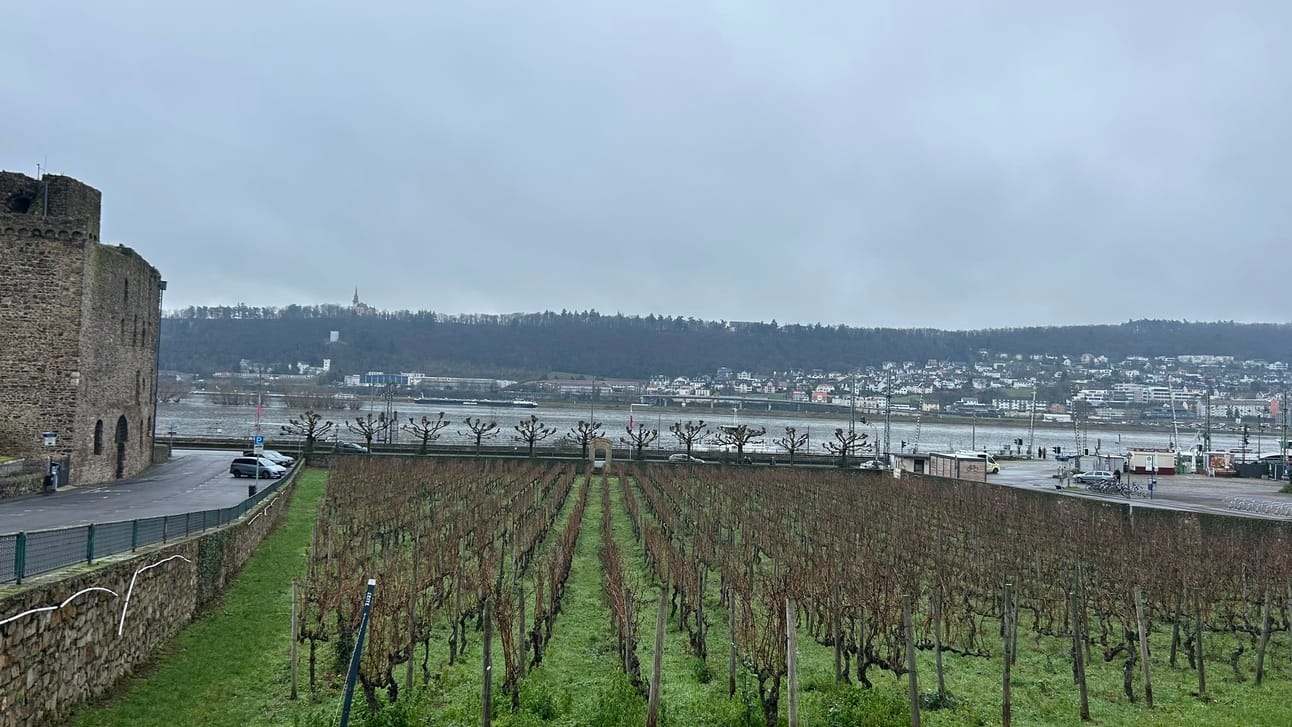
While most tourists might consider December 25th a "dead" day for travel, I discovered it was perfect for exploring Rüdesheim, a jewel of German wine country just an hour from Frankfurt. The train ride itself became part of the magic – winding along the Rhine River, past frost-dusted vineyards that looked like intricate lacework against the winter sky.
Travel Tip: Many trains run on reduced schedules during Christmas. Check bahn.de and book in advance – you might snag a super-saver fare as low as €19.90 one-way.
Rüdesheim in winter is a different creature from its summer self. Gone are the tourist crowds, replaced by an intimate atmosphere that lets you truly appreciate the medieval architecture and winding alleyways. The bare vineyards, stretching up the steep hillsides, tell their own story of dormancy and promise.
The Soul-Warming Magic of Glühwein
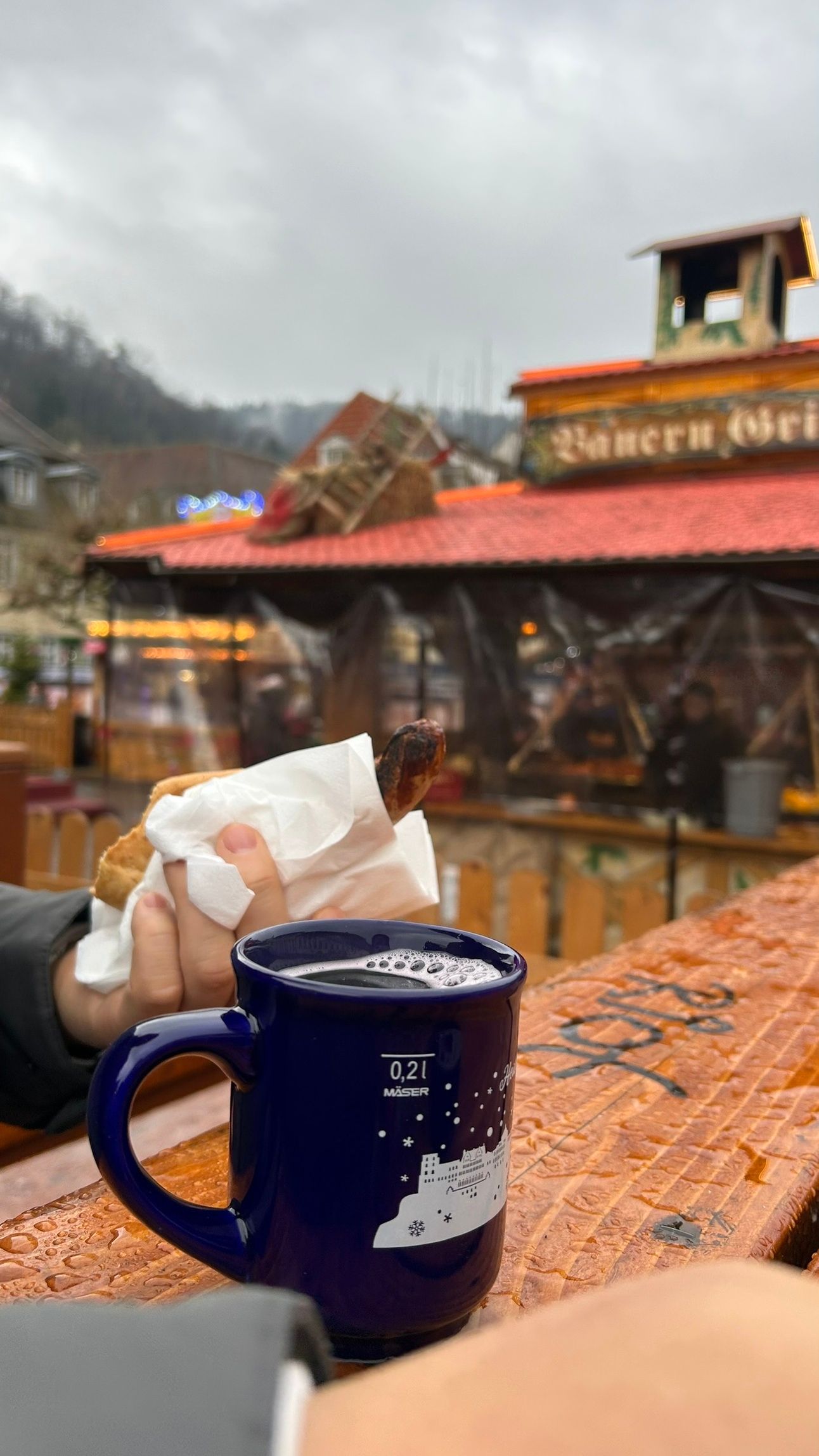
It was in a centuries-old wine cellar, warmed by ancient stone walls and hospitality, where I truly understood why Germans cherish their winter wine traditions. The vintner, a third-generation winemaker, shared not just his wines but the stories behind them. The crisp Riesling that first touched my lips carried notes of green apple and limestone – "the taste of our soil," he smiled.
But the true revelation was his family's Glühwein recipe, perfected over generations. Unlike the often-too-sweet versions at Christmas markets, this was a sophisticated ballet of wine and spices. "The secret," he confided, leaning across the ancient wooden counter, "is in treating the wine with respect. Too many people boil the wine and wonder why it tastes bitter."
Taking notes as he prepared a batch, I watched him transform a bottle of local red wine into something magical. Here's the recipe he shared, with his permission:
The Vintner's Traditional Glühwein
"Remember, patience makes perfect. Rush it, and you'll lose the wine's soul." - Klaus, Rüdesheim Vintner
Ingredients:
1 bottle of good red wine (use something you'd enjoy drinking on its own)
1 organic orange, sliced (with peel for more aroma)
½ lemon, sliced
2 cinnamon sticks
4-5 cloves
2-3 tablespoons honey or brown sugar (adjust to taste)
1 star anise
Optional: a splash of rum or brandy ("for special occasions," Klaus winked)
The Method:
"First, warm your wine gently," Klaus instructed. "Medium-low heat - you should be able to hold your hand on the pot's side comfortably."
Add your fruits and spices. "Let them dance together slowly," he said, "but never let them reach a boil."
Simmer gently for 10-15 minutes, until the kitchen fills with the aroma of spices and citrus.
Strain and serve in traditional Glühwein mugs, garnished with a fresh orange slice.
Klaus's Pro Tips:
"Always start with good wine - Glühwein can't improve a poor base."
Keep leftover Glühwein in a sealed bottle. "It's even better the next day," he assured me.
For non-alcoholic version, replace wine with good quality grape juice and reduce sugar.
A Wine Lover's Guide to Winter Pairings
As the afternoon deepened into evening, Klaus shared his wisdom about winter wine pairings. "Winter calls for different flavors," he explained, pouring a deep ruby Spätburgunder. "The cold changes how we taste, how we appreciate."
Riesling: The Winter White
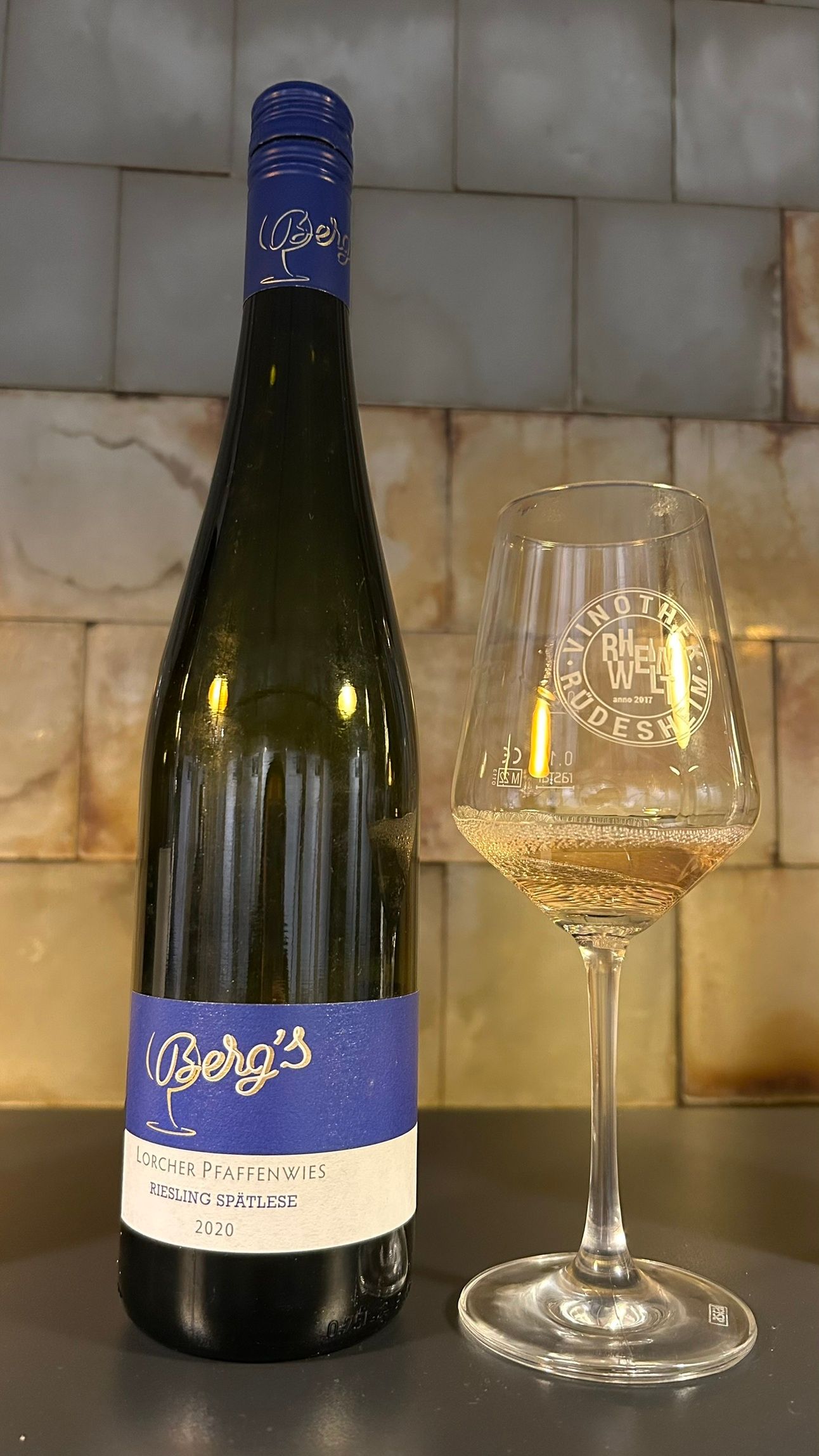
"People think Riesling is just for summer," Klaus said, "but our winter Rieslings tell a different story."
Perfect with winter fish dishes, especially smoked trout
Brings brightness to heavy winter stews
The ideal partner for spicy Asian dishes that warm the soul
Spätburgunder (Pinot Noir): The Cozy Red
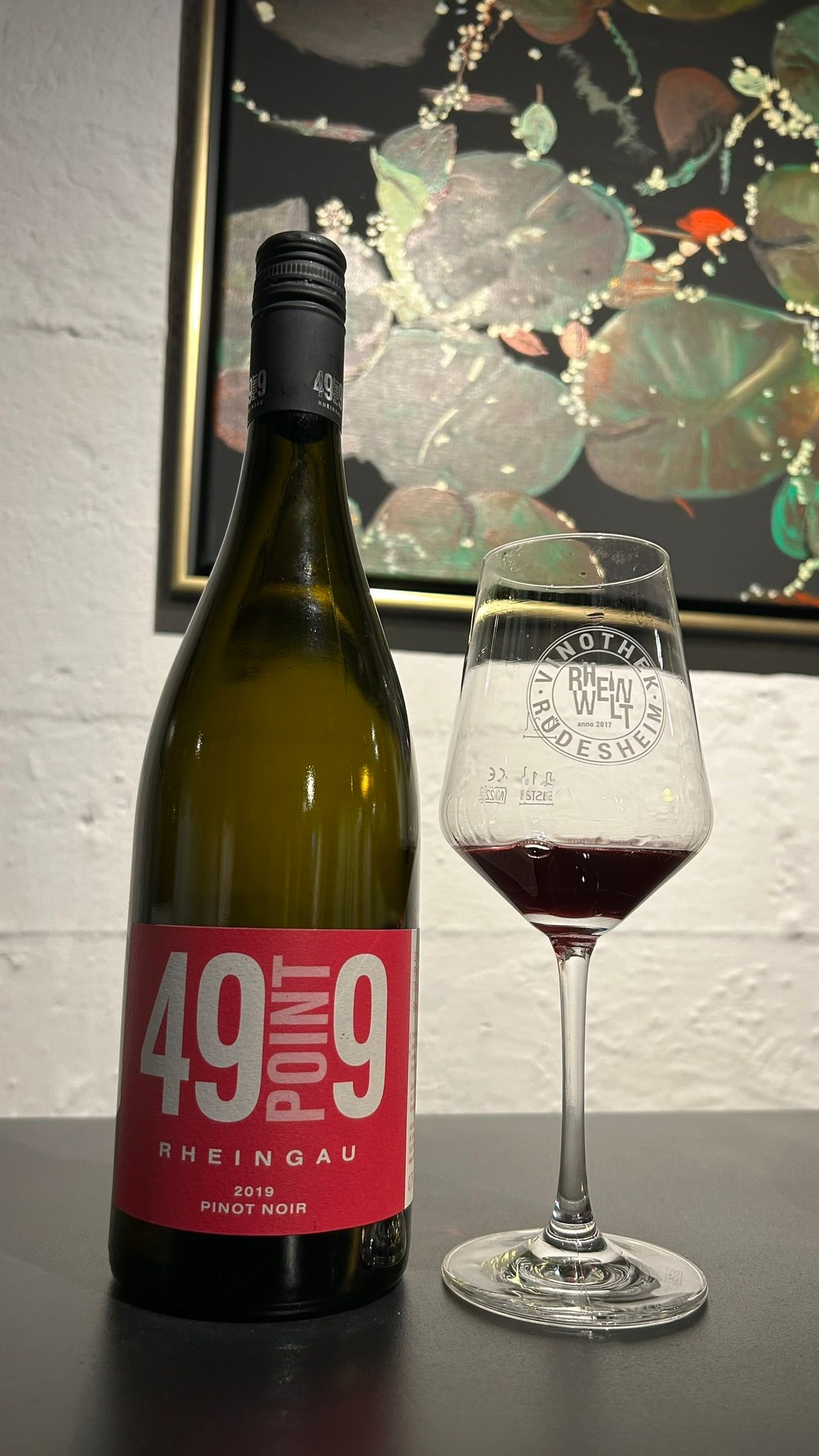
"This is our meditation wine," Klaus smiled as he poured.
Wonderful with winter game dishes
Pairs beautifully with mushroom risotto
Light enough for afternoon sipping, complex enough for evening contemplation
The Art of Glühwein Pairing
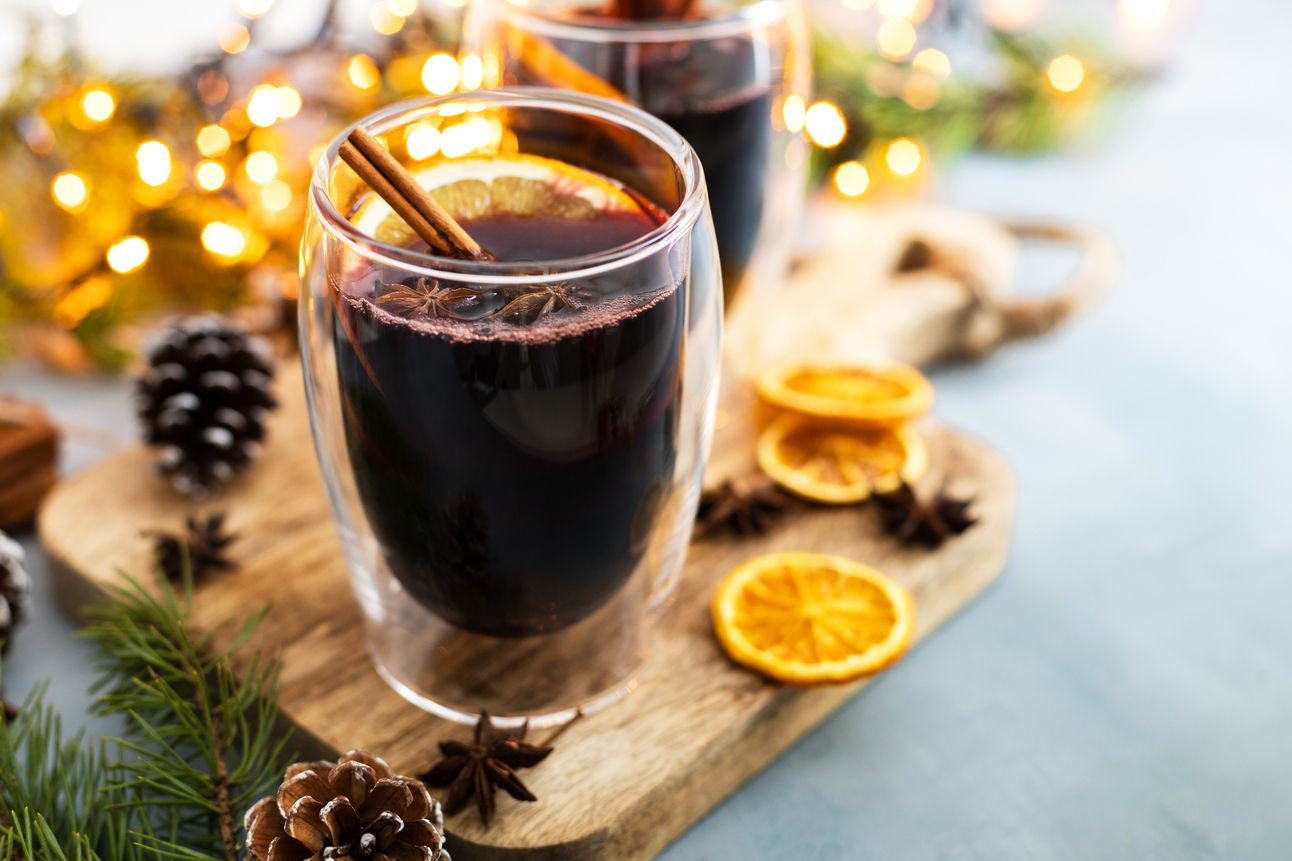
"Glühwein isn't just a drink - it's part of the meal," Klaus insisted.
Traditional German Christmas cookies (Lebkuchen)
Roasted nuts, especially almonds
Aged hard cheeses
Apple strudel served warm
A Promise of Return
While the serene winter atmosphere of Rüdesheim captured my heart, Klaus's stories about the autumn harvest season have planted a seed of curiosity. "You should see these hillsides in September," he said, his eyes lighting up. "The vines heavy with grapes, the whole town buzzing with energy, and the air sweet with the promise of new wine. Every weekend is a wine festival somewhere in the region."
The contrast intrigues me – the meditative quiet of winter and the vibrant energy of harvest time. Perhaps that's the true magic of wine country: each season reveals a different facet of its character. While I cherish my peaceful winter experience, I've already marked my calendar for a return trip during the harvest season, when the vineyards come alive with pickers and the centuries-old tradition of grape gathering continues under the autumn sun.
Planning Your Visit
Winter (December-February):
Peaceful, intimate atmosphere
Perfect for traditional Glühwein experiences
Ideal for photography of frost-covered vineyards
Less crowded wine tastings with more personal attention
Harvest Season (September-October):
Wine festivals every weekend
Opportunity to witness grape harvesting
Vibrant atmosphere with many cultural events
Fresh wine tasting experiences
Essential Planning Tips
Book accommodations early – many hotels reduce staff during holidays
Research restaurant openings carefully for December 24-26
Consider visiting wine regions between Christmas and New Year when tasting rooms reopen
Pack warm layers – winter vineyard walks are magical but chilly
As I write this, my kitchen fills with the aroma of simmering Glühwein, and for a moment, I'm transported back to that quiet Christmas in Germany. Sometimes the most memorable journeys are the ones that surprise us by defying our expectations – and leave us eager to return for more.
Author's Note: All prices and schedules mentioned are subject to change. Always check current information before traveling.
Reply